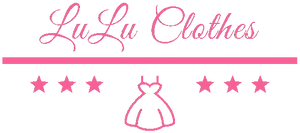Are you dreaming of launching your own clothing line in the United States? While the prospect of turning your passion into a profitable business is exciting, navigating the legal requirements can feel like a daunting task.
Fear not, as we'll break down the essential licenses and permits you'll need to kickstart your clothing business legally and smoothly.
As you know Lulu Clothes is the leading clothing wholesaler in the USA. Here we are going to share with you what licenses are required to start a clothing business in the USA.
Business Structure and Registration
Before delving into licenses, you must decide on your business structure – sole proprietorship, partnership, limited liability company (LLC), or corporation.
Each option has its own pros, cons, and tax implications. Once you've chosen your business entity, register it with your state or local government.
For sole proprietorships and general partnerships operating under a different name than the owner's legal name, you'll need to register a "Doing Business As" (DBA) or fictitious name with your county or state authorities.
Federal Employer Identification Number (FEIN)
If you plan to hire employees or operate as a partnership or corporation, you'll require a Federal Employer Identification Number (FEIN) from the Internal Revenue Service (IRS). This nine-digit number acts as your business's social security number for tax purposes.
State Tax Registration and Seller's Permit
Since clothing items are taxable goods, you'll need to register with your state's tax authority to obtain a seller's permit or certificate of authority.
This permit allows you to collect sales tax from customers on your clothing sales and remit it to the state.
Additionally, some states require a separate certificate or license for manufacturers, even if you outsource production to contractors.
Local Business Licenses and Permits
Depending on your city or county, you may need additional licenses and permits to operate legally.
These can include a business license, zoning permit, signage permit, and fire department permit if you have a physical storefront or manufacturing facility.
Insurance
While not a legal requirement per se, adequate insurance coverage is essential to any business. General liability insurance protects you from claims of bodily injury, property damage, or advertising injury.
You may also need product liability insurance to cover any damages or injuries caused by your clothing products.
If you plan to hire employees, you'll need workers' compensation insurance, as mandated by state laws. Additionally, consider business property insurance and commercial auto insurance if you use vehicles for your operations.
Intellectual Property Protection
If you plan to create a unique brand or design for your clothing line, consider protecting your intellectual property by registering trademarks and copyrights with the United States Patent and Trademark Office (USPTO).
Home Occupation Permit (for online clothing businesses)
If you run a business from home, you need a home occupation permit. This permit is required even if your home-based ecommerce business exempts you from commercial taxes.
In some states, you also need 'Zoning Approval.' This ensures your neighborhood allows home businesses and that you follow rules about parking, noise levels, and other regulations.
While the legal requirements may seem daunting, taking the time to understand and comply with them can save you from potential legal issues and fines down the road.
It's advisable to consult with a legal professional or small business association to ensure you've covered all bases specific to your state and business model.

